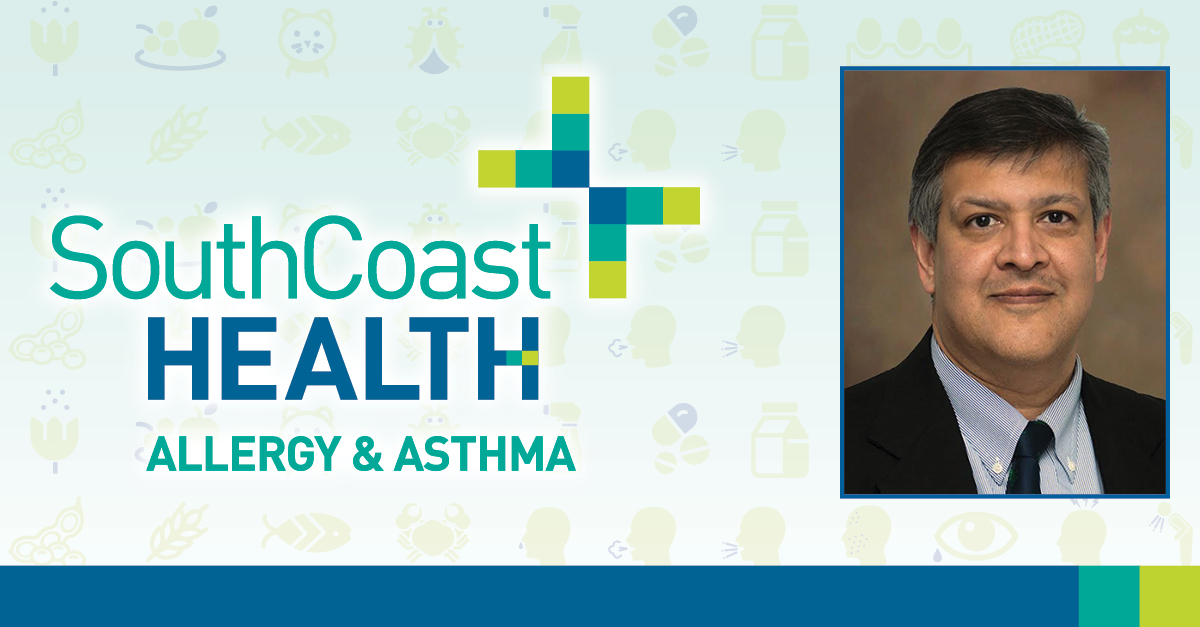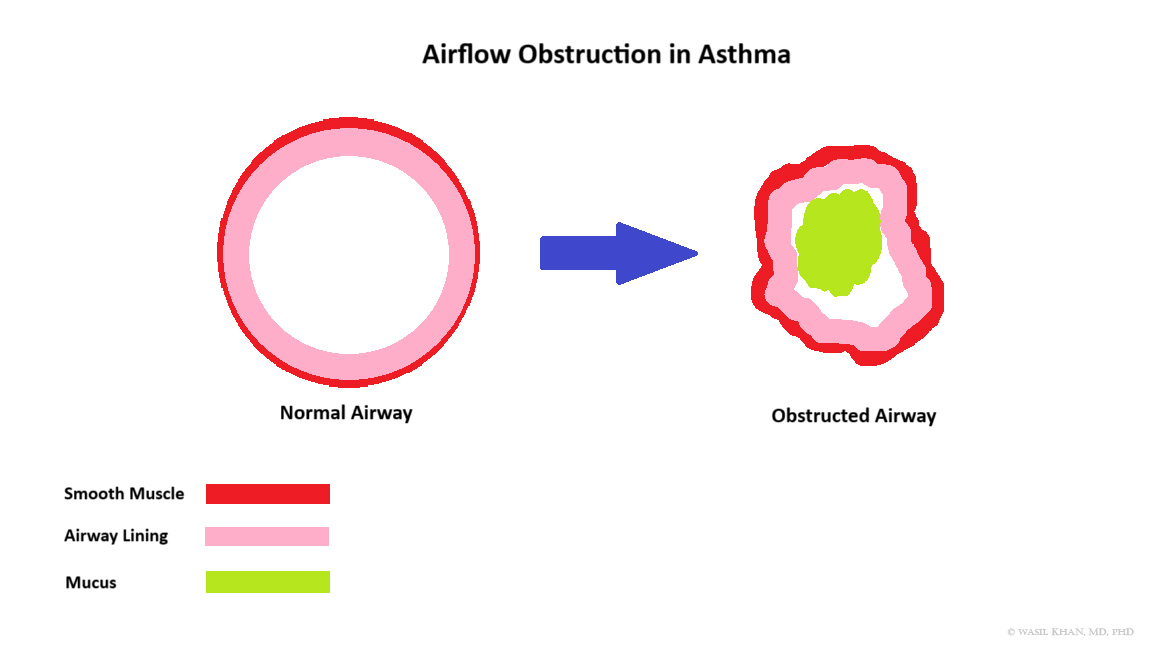Serving the Lowcountry and Coastal Empire of Georgia and South Carolina.
Wednesday, April 30, 2025

Asthma is a common but often misunderstood condition that can impact your daily life if not properly managed. In recognition of Asthma and Allergy Awareness Month, SouthCoast Health allergist Dr. Wasil Khan shares what you need to know about asthma, its symptoms, and when it’s time to see a specialist.
Asthma is a chronic respiratory condition that affects about 25 million people in the U.S., including both children and adults. It’s a leading cause of approximately a million emergency room visits and hospitalizations, with an estimated $50 billion in healthcare costs annually.
Common symptoms of asthma include:
However, these symptoms can also be caused by other conditions such as emphysema, throat spasms, or respiratory infections, which makes asthma challenging to diagnose.
Asthma triggers vary from person to person but often the most common ones include allergens such as dust, mold, pollen, and pet dander. People with asthma often have allergic conditions like nasal allergies and eczema. Additional asthma triggers include:

Most cases of asthma have an allergic trigger like dust, mold, pollen, or pets. Allergists can help determine if allergies are present, and to which specific allergens.
Since most asthma cases are triggered by allergies, seeing an allergist can make a big difference. Allergists are specially trained to:
Additional goals of asthma management include prevention of excessive missed school or work due to asthma, having no limitation in participating in desired activities due to asthma, and prevention of accelerated loss of lung function.
Asthma is characterized by episodes of airflow obstruction and inflammation within the airways of the lungs. This obstruction results from the tightening of the muscle layer surrounding the airways, along with inflammation that causes swelling and mucus buildup (see figure below). When present, these changes lead to the typical symptoms of asthma. A key feature of asthma-related airway obstruction is that it is often at least partially reversible with bronchodilator medications such as albuterol.
Diagnosing asthma typically involves:
Spirometry measures how much air you can exhale and how quickly you can do so. This test can detect reversible airway obstruction and evaluate the severity of impairment. It is a vital tool not only in diagnosing asthma but also in monitoring how well it is controlled over time.
We now recognize that asthma is not a uniform condition. Additional tests such as blood work and the measurement of inflammatory markers in exhaled breath can help further characterize the type of asthma, which allows for more personalized and targeted treatment approaches.

The lung airways become obstructed in asthma due to constriction of airways smooth muscle, swelling of the airway lining, and excessive accumulation of inflammatory material like mucus in the airways.
Once asthma is accurately diagnosed, effective management includes several important steps: assessing the severity of the condition, identifying and avoiding known triggers, and prescribing medications based on severity.
Asthma is typically categorized into four severity levels, listed in order of increasing intensity:
These classifications are based on the frequency of symptoms during the day and night, as well as lung function test results.
Since asthma can vary over time, a person’s severity level may change. As a result, treatment plans and medications may need to be adjusted to maintain optimal control.
Asthma medications historically have fallen into two categories:
For severe asthma that doesn’t respond to traditional therapies, biologic treatments are now available. These target specific inflammatory pathways to improve asthma control.
The “Rule of 2” is a useful tool to assess one’s asthma control. This simple checklist can indicate how well your asthma is managed:
If you answered yes to all of these questions, this indicates your asthma symptoms are under good control.
If you’re experiencing asthma symptoms or your current treatment isn’t working, it's time to take the next step. Our board-certified allergist, Dr. Wasil Khan is here to help you breathe easier with a personalized approach to diagnosis and care. Schedule an appointment with our allergy and asthma specialist today.
Whether you are looking for a primary care doctor or a pediatrician, or another medical specialist, SouthCoast Health has you covered with its wide range of world-class healthcare services, available throughout the Coastal Empire and Lowcountry. SouthCoast Health has 120 physicians and medical professionals in 16 locations in Savannah, Richmond Hill, Pooler, Rincon, Baxley, Hilton Head, Hinesville, and Statesboro. SouthCoast Health offers comprehensive medical services including: Family Medicine, Internal Medicine, Pediatrics, Allergy and Asthma, Cardiology, Endocrinology, Eye Care, Imaging, Infectious Diseases, Nephrology, Neurology, Physical Therapy, Podiatry, Surgery, Clinical Trial Research Studies, Diabetic Self-Management Training Sessions, Dietetic Counseling, Laboratory Services, Massage Therapy, Optical Shop, Pharmacy, and Urgent Care.